Swasthya Swaraj
Community
Empowerment
Community Empowerment
Swasthya Swaraj is a secular, not-for-profit, organization working towards making health a reality for the poorest and unreached. We focus on Tribal Health. Comprehensive community health programme is our approach. Community empowerment is given equal importance as clinical services to make community participation in primary healthcare meaningful and effective.
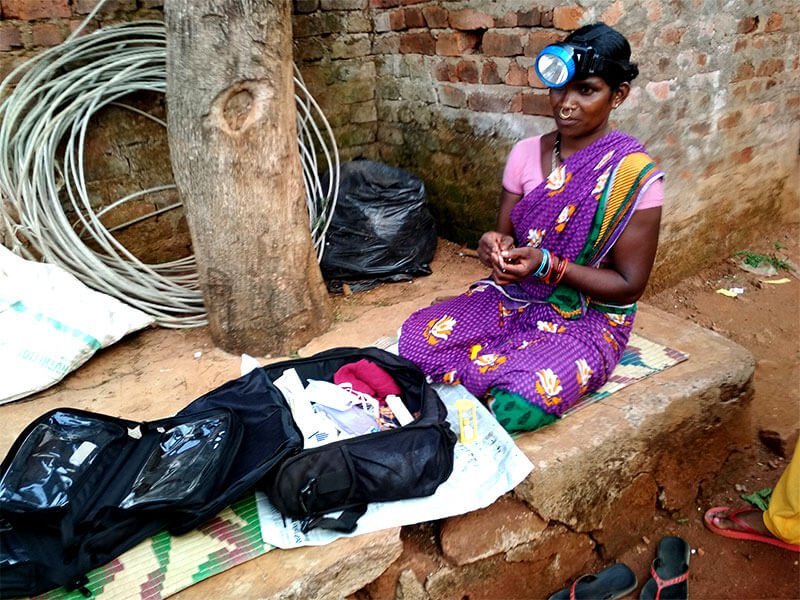
Swasthya Sathis
To reach out to the last unserved man in every village and hamlet, it is crucial to have a point of contact from the community. It would be all the more effective if the POC is trained in basic medical care. 79 illiterate tribal women have been identified and trained as Swasthya Sathis. Their training and capacity building is given paramount importance. After the intensive training, they are trained systematically every month for one and half days (residential).
Read More
All the training conducted is decentralized in two locations to ensure the full participation of all the Swasthya Sathis. They as frontline health workers are made aware of their duties and responsibilities, accurate data documentation of vital events and disease surveillance, health communication, diagnosis and management of common communicable diseases, diseases of under five children, detection of danger signs, Nutrition, growth monitoring of underfive children, antenatal care, postnatal care, care of the newborn etc. These illiterate Swasthya sathis are given diagnostic kits and essential medicines.
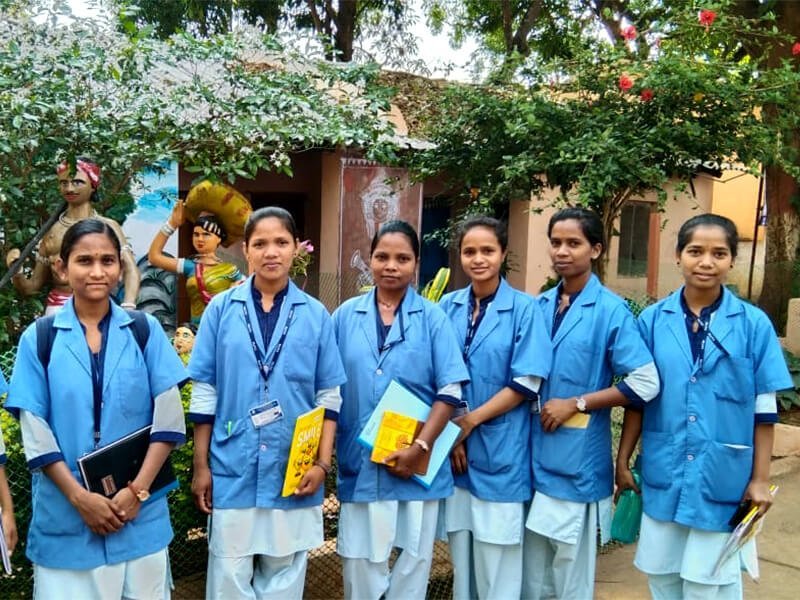
Community Health Practitioners (Middle level health workers)
This is a course designed by Swasthya Swaraj Society, affiliated to the School of Paramedics and Allied Health Sciences of the Centurion University of Technology and Management, Odisha. The course was initiated in 2018 and is intended to produce a well qualified and competent tribal healthcare workforce (community health practitioner) in remote tribal areas. This is a two year, full time residential programme, completely free of cost. Tribal girls who have completed class 12, and are from disadvantaged communities are selected, who would become trained human resources for the local community. At present, the fourth batch is running.
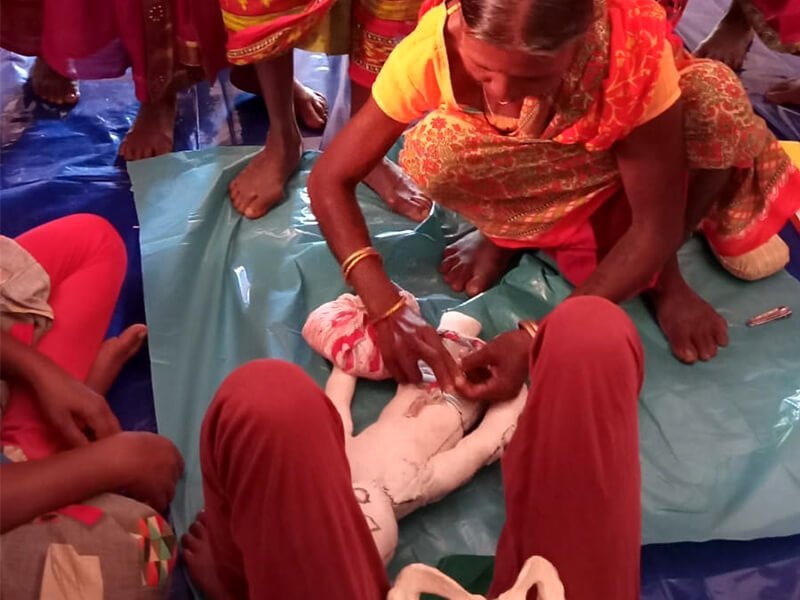
Trained Birth Attendants
Trained Birth Attendants are traditional tribal midwives in the community. In our fight to reduce maternal and neonatal mortality and morbidity in the unreached tribal hamlets, it is crucial to work with the TBAs. 63 untrained traditional birth attendants were trained intensively followed by six monthly training every year in both Kaniguma and Kerpai clusters. They are trained by doctors and senior nurse trainers on conducting safe deliveries and detection of danger signs well in advance. They are provided a TBA kit.
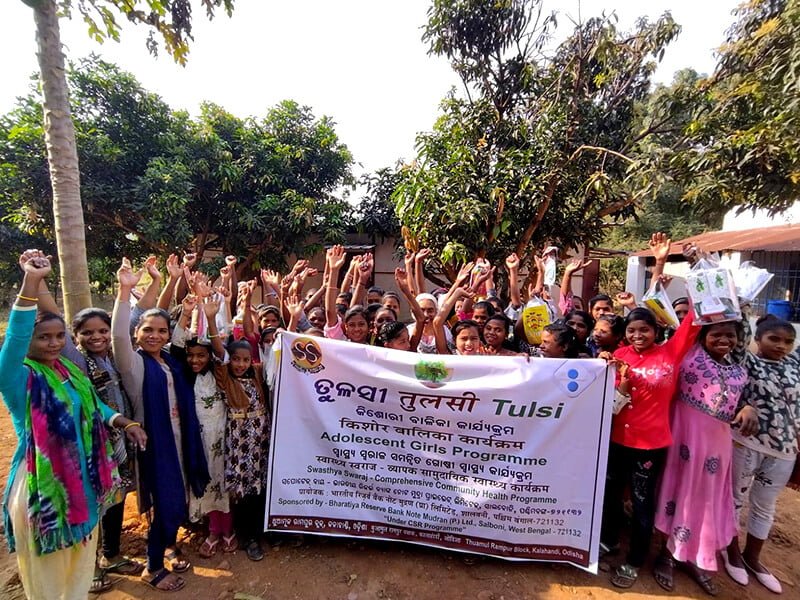
Toki Uplifyment and livelihood Self initiative (TULSI)
Adolescence is a critical time of life. It is also one of the most challenging periods from a health and nutrition perspective. The adolescent girls in tribal communities are vulnerable and disempowered. The TULSI programme focuses on 1500 tribal adolescent girls in PVTG communities (68% illiterate) as they are the important link towards improving the health and survival of the present and future community. The goal of the programme is to empower the girls and improve their health & nutrition status and thereby improving the survival of mothers and newborns.
Read More
Training and empowerment of the tribal adolescent girls consist of community- based training in the villages and hamlets, and educational institution-based training in Govt high schools and junior colleges of Th Rampur Block. Training modules are prepared tailored to the needs of these vulnerable, majorly illiterate, and powerless groups.
In all the 79 project villages and hamlets TULSI clubs are formed and TULSI Sathis are identified as peer group educators. These TULSI Sathis are trained regularly on various themes like Sexual and Reproductive Health, gender equality, Nutrition, common health issues, Life skills, Non-formal education, and Livelihood skills. The peer group educators in turn impart the training to TULSI clubs twice a week in their TULSI clubs for two hours. Many innovative programs and activities are planned for the empowerment of this group and in the institution-based training, sexual & reproductive health with gender sensitization, nutrition in adolescence, and life skills only are imparted.
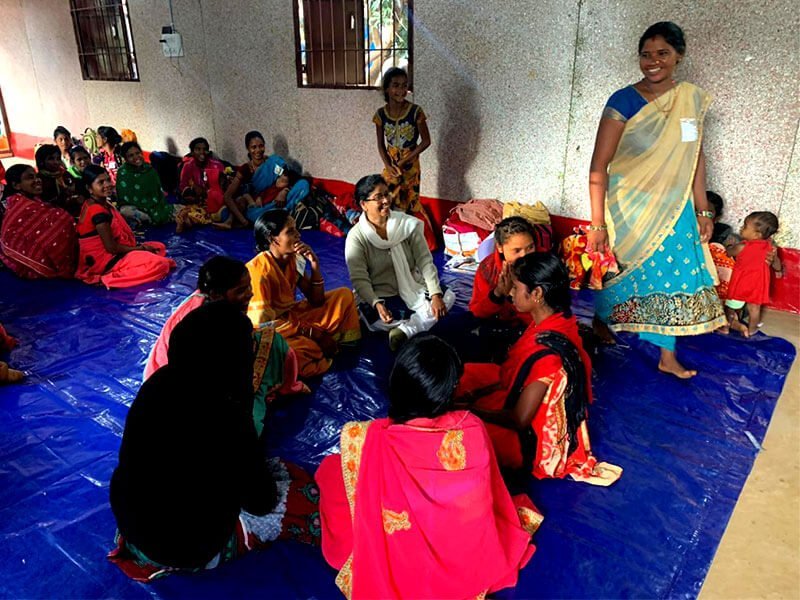
Shishu Sathis- informal preschool educators
Most needy and deprived children live in tribal hamlets and they are deprived of not only nutrition care but also Preschool education which does not happen. They benefit only marginally from the Govt schemes. Shishu sathis are semi-literate tribal women in each hamlet trained by Swasthya Swaraj as preschool educators. These informal preschool educators engage the children of the 3-6 year age group in creative preschool education which stimulates their own creativity and prepares them for schooling and thereby reducing the primary school dropouts too later. These women also take care of the serving of hot cooked meals to these children in the hamlets along with members of the mothers’ committees.
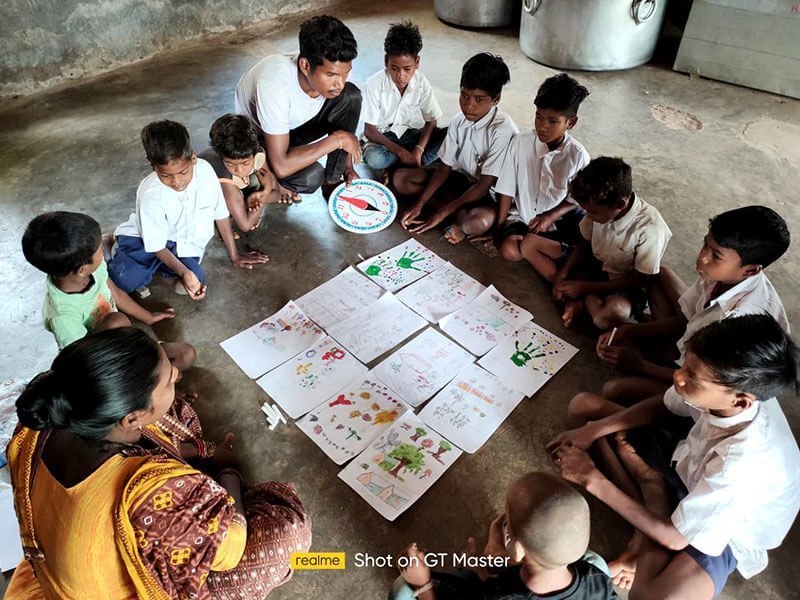
Shiksha Sathis
In 14 Govt Primary schools where Swasthya Swaraj is implementing an innovative programme of “health & nutrition promoting schools”, these Shiksha sathis who are the literate village youth, trained in creative methods of educating the primary school children to engage the children and try to make the school education a joyful experience for children.
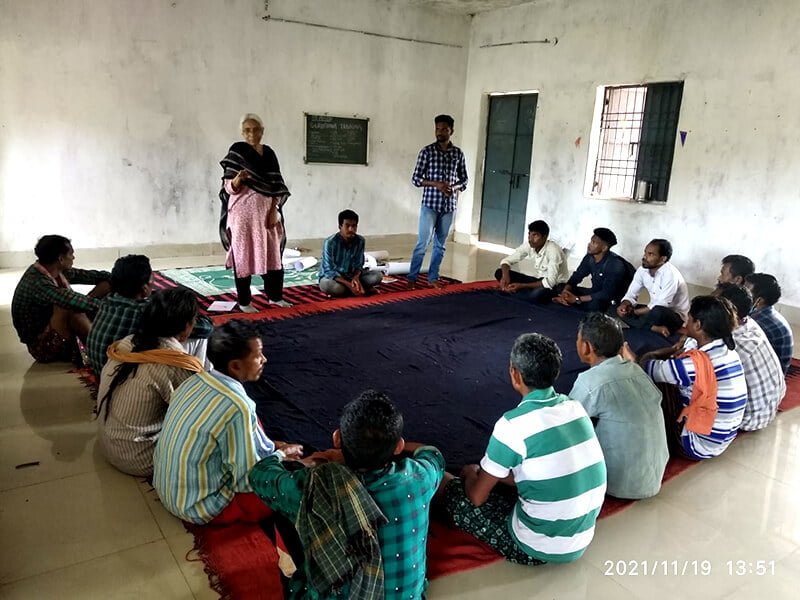
Guru Guniya Training
These traditional healers are an integral part of the tribal culture and they are respected by the community. For the majority of the tribal population, the first port of call in ill health is the gurus. They are periodically trained by Swasthya Swaraj to enable them to participate in improving the health status of the tribal people. It is a mutual learning process and they learn about the danger signs in common communicable diseases, medical emergencies and when to refer etc.
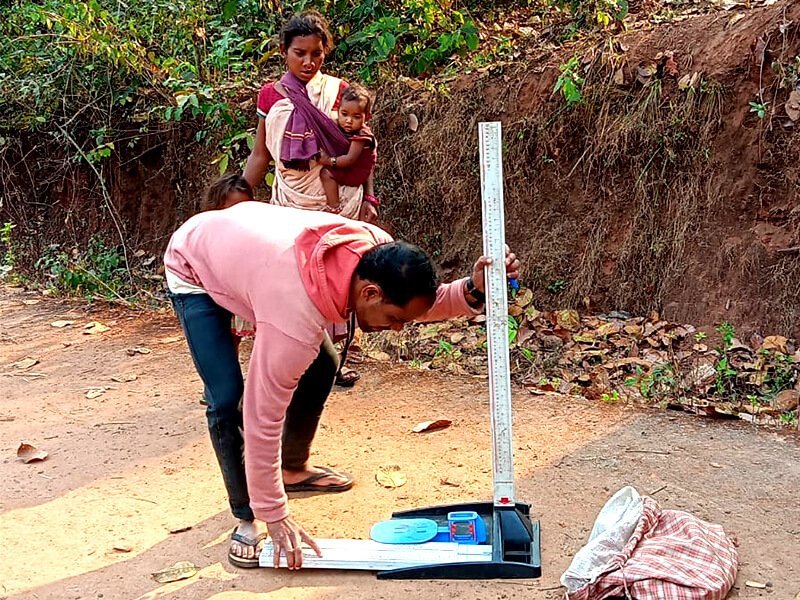
Field Animators
Our unsung heroes! They are from the tribal community who are aspiring to become their leaders.12 educated tribal youth are being trained who would be responsible for a cluster of 7-8 villages. From taking anthropometric measurements, community mobilization, conducting village meetings, problem identification and solving them – they do it all. Their capacity building activities are held regularly to equip them with better tools and knowledge to lead stronger.
